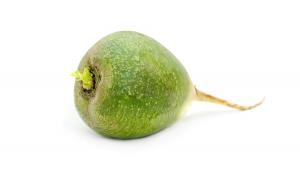Introduction
Palms are a diverse group of tropical and subtropical plants that belong to the family Arecaceae. These plants are widely known for their attractive foliage and interesting characteristics, which make them popular in landscapes and gardens. One common question about palm trees is whether they are tropical plants or not. In this article, we will explore this question in detail and provide you with useful information about palm trees.
What is a Tropical Plant?
Before we dive into whether palm trees are tropical plants, it's essential to understand what a tropical plant is. A tropical plant is any plant that thrives in a tropical climate, which is typically found between 23.5 degrees north and south of the equator. These plants require warm temperatures, high humidity, and abundant rainfall. Tropical plants also need plenty of sunlight to grow and develop.
Is Palm Tree a Tropical Plant?
Now that we know what a tropical plant is let's go back to our question - is palm tree a tropical plant? The answer is yes, palm trees are tropical plants. Most palms are native to tropical regions in Asia, Africa, and South America, where they grow in high rainfall areas with high humidity and warm temperatures. Growing palm trees outside these conditions can be challenging, and they often require greenhouse or indoor growing to thrive.
Types of Palm Trees
Palm trees are an incredibly diverse group of plants, with over 2,500 known species, each with unique characteristics and requirements. Some of the most commonly grown palm trees in the tropics include:
Coconut palm
Areca palm
Date palm
Queen palm
Sago palm
Majesty palm
Each of these palm trees has its specific environmental requirements, and choosing the right species for your climate is vital to ensure their growth and development.
Growing Palm Trees
When it comes to growing palm trees, there are specific environmental requirements that gardeners must meet to ensure success. The most critical factors to consider include:
Temperature – palm trees need warm temperatures ranging between 65-85°F to thrive.
Watering – palm trees require regular watering, particularly in the summer months, to keep the soil moist.
Light – most palm trees require full sun for at least 6-8 hours a day to grow and develop correctly.
Soil – palm trees prefer well-draining soils that are rich in nutrients.
Gardeners should also be aware of pests and diseases that can affect palm trees, such as spider mites, scale insects and fungal diseases.
In Conclusion
In conclusion, palm trees are tropical plants that require warm temperatures, high humidity, and abundant rainfall to grow and develop. With over 2,500 known species, choosing the right palm tree for your climate and environmental conditions is critical to their success. For gardeners looking to grow palm trees, providing the right environmental conditions, regular watering and fertilizing, and pest control can help ensure their growth and development.

 how many times do yo...
how many times do yo... how many planted tre...
how many planted tre... how many pine trees ...
how many pine trees ... how many pecan trees...
how many pecan trees... how many plants comp...
how many plants comp... how many plants can ...
how many plants can ... how many plants and ...
how many plants and ... how many pepper plan...
how many pepper plan...
































